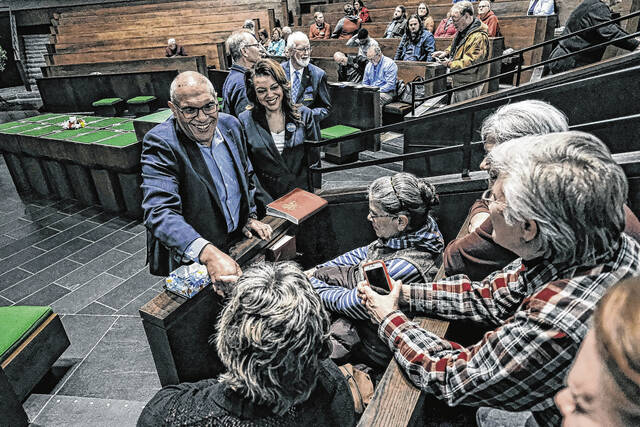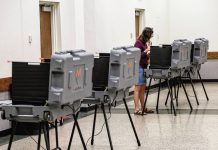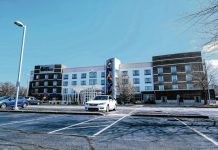
Republic file photo Dr. Woody Myers and his wife Stacy are shown at past gathering at Columbus’ North Christian Church.
Former Indiana governor candidate and former state health commissioner Dr. Woody Myers will be the keynote speaker at the Columbus/Bartholomew County Area Chapter of the NAACP’s Rev. Martin Luther King Jr. program on the holiday at 3:30 p.m. Jan. 17 at The Commons.
The free program, open to all and lasting until 7:30 p.m., will be limited to 200 socially distanced people with masks required, according to organizers.
A boxed snack will be served to attendees during a program break.
Myers is expected to speak on the current racial climate and to salute the legacy of the late King, the celebrated civil rights leader who was assassinated in April 1968.
This program follows the city’s free annual Rev. Martin Luther King Jr. Breakfast at 7:30 a.m. at The Commons.
The afternoon gathering is the NAACP’s team effort with the African American Fund of Bartholomew County and IUPUC, according to Pastor Johnnie Edwards, NAACP president. Barbara-Bolling-Williams, president of the Indiana chapter of the NAACP who also sits on the national board of he NAACP, also will speak that day.
Reinhold Hill, IUPUC Vice Chancellor and Dean, will present the Diversity Awards during the gathering.
Stacy Myers, the wife of the keynote speaker, will participate in a panel discussion during the afternoon. The discussion, facilitated by Stephanie Carmer and Women in the NAACP, will include a focus on women’s contributions to the NAACP and their role during the civil rights movement and beyond.
The local NAACP will distribute its own awards during the get-together, plus its four scholarship award recipients — two students and two continuing education adults. The top recipient in each category will receive $750 and each second-place recipient will receive $500.
“I think a big part of the local NAACP’s responsibility is to continue to engage the community about issues even when we don’t have anything traumatic going on,” Edwards said. “That includes education and building alliances locally, and working to make sure that the door of communication stays open.”




